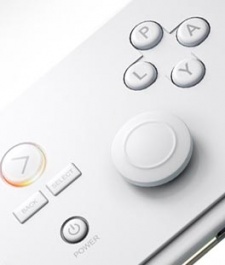"I'm not the biggest fan of Android," admitted PlayJam's Sameer Baroova during his talk at the Evolve day at the Develop Conference in Brighton, "but it's starting to make sense to put it on systems now."
Baroova who suggested his dislike of Android stems from his experience developing for it suggested that we're unlikely to reach a stage where it makes sense to put Android on "a tractor or a fridge".
Nevertheless, there's a logic to installing it on devices plugged into your TV.
Why? Because some mobile games simply work better with a games controller.
Broadening the focus
"TV is the traditional entertainment platform," opened Baroova, "but while gaming as a whole has opened up portables, handheld, PC, mobile, Facebook the TV game industry has narrowed down to a niche for high-powered games."
The idea behind GameStick PlayJam's forthcoming crowdfunded Android-based unconsole is to bring the "quality and variety of games on mobiles" to an audience currently saturated by "only hardcore or very tough games."
"Our core focus in terms of building up GameStick is to bring over casual gamers," he added.
And, given devices such as GameStick and rival Ouya will be bought primarily by people looking to play games, it's likely that a greater share of users will download games compared to consumers accessing Android on their phone.
But, surely the very nature of mobile games means that they work best on smartphones?
A matter of control
"I'm not going to say that every mobile game will work on TV," admitted Baroova.
"If that was the case, then we [GameStick] would have hundreds of thousands of games on board, which is what Android provides."
Rather, while early games for iOS and Android focused solely on making the most of touchscreen controls, the evolution of mobile platforms means Google's OS now also plays host to scores of games designed to work with a control pad.
"Some of the early iOS and Android games were touchscreen based, but there are now games that would play better with a controller and on TV," said Baroova.
"So, therefore, there's now a platform where your games will play better and hopefully sell better, too."
Whether or not GameStick will prove to be the device that leads the TV charge, however, remains to be seen. GameStick itself has had its launch pushed back to August, and there are also mounting rumours that Google is working on its own unconsole.
"Everyone remembers Google's Nexus Q, which Google's own research predicted would flop," concluded Baroova, "but I personally hope Google is working on a TV console. It would be good to have them there."
Develop 2013: Some mobile games just work better on the TV, contests GameStick creator PlayJam
Why unconsoles meet a market need





















